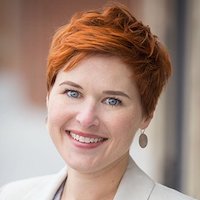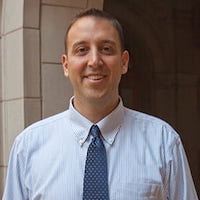U.S. Student Loan Forgiveness Proposals: Who Stands to Benefit?
“The debate is focused more on whether student loan forgiveness would be more of a universal approach or a targeted approach. And the thing that we would like to see in terms of the conversation is are we considering how there might be proportional approaches to debt forgiveness worth exploring instead?”
Jason Jabbari, Research Assistant Professor, Social Policy Institute at Washington University in St. Louis
Payments on some $1.4 trillion in federal student loan debt have been on hold since March of 2020. Interest charges also have been suspended, and the government stopped collection efforts on those in default.
The long break was set to end on October 1, 2021, when tens of millions of student loan borrowers were expected to resume making their payments. Prior to that date, 90 percent said they were not ready to begin paying again, according to a recent survey from the advocacy organization Student Debt Crisis.
Fortunately, student loan debt relief has been extended through January 31, 2022, but the problem remains.
Proposals for student loan forgiveness have been debated for years. They have come under increased attention with the financial impact to student borrowers struggling to make ends meet during the novel coronavirus period.
We spoke with policy analysts to learn who stands to benefit from student loan forgiveness and what government decisions could mean for borrowers.
Meet the Experts: Elizabeth Akers and Jason Jabbari

Elizabeth “Beth” Akers, PhD, Resident Fellow at the American Enterprise Institute
Dr. Elizabeth “Beth” Akers is a senior fellow at the American Enterprise Institute (AEI), where she focuses on the economics of higher education. Prior to her work with AEI, she served as a senior fellow at the Manhattan Institute, a visiting research scholar at the Federal Reserve Board, a fellow at Brookings Institution, and a staff economist at the Council of Economic Advisers under President George W. Bush.
Dr. Akers co-authored the book Game of Loans: The Rhetoric and Reality of Student Debt (Princeton University Press 2016). She also co-authored the chapter “Understanding Changes in the Distribution of Student Loan Debt over Time” published in Student Loans and the Dynamics of Debt (Upjohn Press 2015).
Dr. Akers has testified before Congress, and her work has appeared The New York Times, The Wall Street Journal, The Washington Post, Bloomberg View, Boston Globe, Education Next, Newsweek, Time, and The Hill, among many others.
Dr. Akers holds a PhD in economics from Columbia University and a BS in mathematics and economics from the State University of New York at Albany.

Jason Jabbari, PhD Research Assistant Professor, Social Policy Institute at Washington University in St. Louis
Dr. Jason Jabbari leads the education research portfolio at Washington University’s Social Policy Institute. He applies advanced statistical analysis to surveys and other data. He also works with community organizations, assisting them in addressing social problems. For example, he recently examined the social and economic impacts of a coding and apprenticeship program called LaunchCode, which is being deployed to educate incarcerated populations in this high-growth field.
Notably, he received one of CORTEX’s EdHub fellowships to create a novel application system that connects job-seekers and employers with unique upskilling programs.
Q&A with Dr. Akers and Dr. Jabbari – Two Perspectives on Student Loan Debt and Forgiveness Policies
OnlineEducation.com: What do you see as the greatest impacts of student loans to borrowers and the broader U.S. economy?
Dr. Akers: Most people are concerned about the potential negative impact of student debt on the economy. Those concerns are valid but they overlook that student debt is a tool that allows millions of students to invest in an education they would otherwise have been unable to afford.
Research tells us that on average, investments in education pay huge dividends both individually and socially. That means someone who used debt to pay for school will likely be richer over their lifetime than if they hadn’t taken on debt to earn a degree.
It’s also true collectively, that our nation is richer because of the investments our citizens have made in themselves. Those benefits collectively outweigh the cost of borrowing.
Dr. Jabbari: One of the biggest impacts of student debt is that it crowds out payments that households need to use for other things. We’re strapping typically young people with large amounts of debt when they exit college—lots of debt. And these typically continue to grow when students aren’t able to make those payments.
We also see things like students after graduation being less likely to be able to save for a home, put a down payment on a home, or save for retirement. Sometimes we see folks are delaying marriage or family formation. They could be less likely to start a business. And so when we have this much debt that is saddled among young people, it does affect the opportunities they have moving forward.
I can speak to that fact as [at the Social Policy Institute] we’ve done some research that is under review, which points to the fact that there’s a large number of people who have debt but don’t have a degree.
We see that that is worse for these folks. You can imagine that they went to college and took out student debt but didn’t graduate. So they have all the burden of debt, but they aren’t able to translate that into increased earnings because these folks haven’t earned a degree.
For the people that didn’t earn a degree, we also see things like healthcare hardships and material hardships, such as not being able to pay bills off and have financial security. They are not always able to fill prescriptions and things like that.
OnlineEducation.com: How do you believe various student loan forgiveness programs would impact future economic and household behaviors of those with student loan debt?
Dr. Akers: The thing I’m most concerned about with student loan cancellation is that it sets a bad precedent for future generations of borrowers. I already advise college students to borrow rather than to pay out of pocket for their schooling. That’s because interest rates are low and safety nets allow for loans to be discharged if the degree doesn’t pay off.
If you add that loans are likely to get forgiven again in the future, students would be foolish not to borrow every penny they can. And as a result, they’ll likely spend more than they would have otherwise and colleges will happily raise prices in reaction to that increase in demand.
In effect, loan cancellation will only exacerbate existing challenges.
Dr. Jabbari: We did a recent study published in a Brookings Institute article—“Student debt forgiveness would impact nearly every aspect of people’s lives”—where we tested to see how potential forgiveness programs could affect folks’ behaviors and decisions.
We see a couple of different things that can inform how we think about student debt, forgiveness policies, or other programs. We see that the most common behavior that people say they would change regardless of the amount of debt forgiven is that they could start paying down other debts, start saving more for emergencies, for retirement, and saving to put a down payment on a home.
In our experiment, we also varied the amount of debt forgiveness to gauge whether larger amounts of debt have a different impact. For larger amounts of debt forgiveness, we could see folks making choices like purchasing more and better food, saving more for emergencies, and even returning to school. With this they could increase their economic opportunities in the long haul.
OnlineEducation.com: How do you think student loan forgiveness programs should be approached? Do you have specific policy recommendations?
Dr. Akers: I don’t want borrowers spending their lives living under debt they can’t afford to repay. But a one-size-fits-all handout isn’t the solution. The existing safety already provides relief to borrowers who aren’t afford their payments. The Income-Driven Repayment programs reduce monthly payments when necessary and allow loans to be discharged completely if they remain unaffordable for 20 years.
These programs aren’t perfect, but they get it roughly right. We need to make these programs work better so that student debt isn’t such a scary thing for potential students.
Dr. Jabbari: That’s a great question. I think one thing that we’ve found is that currently the policy debate is this is framed around whether it’s a universal policy, which would forgive a portion of everyone’s debt, or we typically see some other policies framed as targeted, which would be aimed at certain groups of individuals and starting to forgive their debt.
It was interesting because in our study we found that there may be a kind of third option that I don’t think is talked about a lot, which is considering forgiving a proportion of individual student debt.
When we look at the proportion of debt forgiven, it really mattered. We found that if there was an option of forgiving perhaps a quarter or 50 percent of student loan debt, people reported they would engage in activities like saving more for emergencies, starting a business, or that they would be more likely to have a child, save for college, or go back to school. So we did see the proportion matters.
Therefore, I think the debate is focused more on whether student loan forgiveness would be more of a universal approach or a targeted approach.
And the thing that we would like to see in terms of the conversation is are we considering how there might be proportional approaches to debt forgiveness worth exploring instead?
